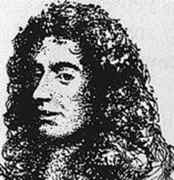Person: Cassini (2), Jacques

Jacques Cassini or Cassini II was a French astronomer and surveyor who carried on his father's work in geodesy.
Mathematical Profile (Excerpt):
- Jean-Dominique Cassini was head of the Paris Observatory at the time of his marriage to Geneviève in 1674 and, two years previously, had become a French citizen, changing his name from Giovanni Domenico Cassini.
- Jacques, the second of his parents two sons, was born at their home at the Observatory in Paris.
- This is where Jacques had his earliest education, after which he studied at the Collège Mazarin in Paris.
- Varignon had been appointed professor of mathematics at the Collège Mazarin in 1688 and he supervised Cassini's thesis on optics.
- In August 1691, at the age of fourteen, Cassini defended his thesis.
- After the Italian trip, Cassini visited Flanders and then England in around 1698.
- It was unfortunate that Cassini resolutely stuck to this position throughout his life, refusing to acknowledge the flattening despite the scientific evidence which was put forward.
- Perhaps indeed both may have contributed without Cassini being fully aware that they were affecting his scientific judgement, or perhaps he was so convinced that the results of the 1700 survey were correct that he could never accept the contrary.
- The real problem with the data from the survey was, as pointed out in 1733 by Giovanni Poleni, that both the elongation proposed by Cassini or the flattening proposed by others, fell within the experimental error of the instruments used.
- Cassini had some legal training but not so much that one would expect him to play a substantial role in this field but, in addition to his scientific work, he did undertake a second parallel career.
- Cassini continued both his astronomical and surveying work.
- However, those like Maupertuis who believed that the Earth was flattened at the poles argued ever more strongly against Cassini's theory and, in an attempt to gain further evidence to support his case, Cassini organised another project in 1733, this time to measure the perpendicular to the meridian from Saint-Malo to Strasbourg.
- Although Cassini never deviated from his belief, he began to scale back his scientific work from 1740.
- As to his contributions to astronomy, Cassini published many papers in the journals of the Académie des Sciences and two major treatises in 1740, namely Elements of Astronomy and Astronomical Tables of the Sun, Moon, Planets, Fixed Stars, and Satellites of Jupiter and Saturn.
- Cassini's work was not restricted to that of astronomy and geodesy.
- Let us end by stressing that Cassini made an extremely important contribution to the major scientific debates of his time.
- We should in no way consider Cassini's contribution any the less important because he was on the wrong side in the debate.
Born 8 February 1677, Paris, France. Died 18 April 1756, Thury, France.
View full biography at MacTutor
Tags relevant for this person:
Astronomy
Thank you to the contributors under CC BY-SA 4.0! 

- Github:
-

- non-Github:
- @J-J-O'Connor
- @E-F-Robertson
References
Adapted from other CC BY-SA 4.0 Sources:
- O’Connor, John J; Robertson, Edmund F: MacTutor History of Mathematics Archive
